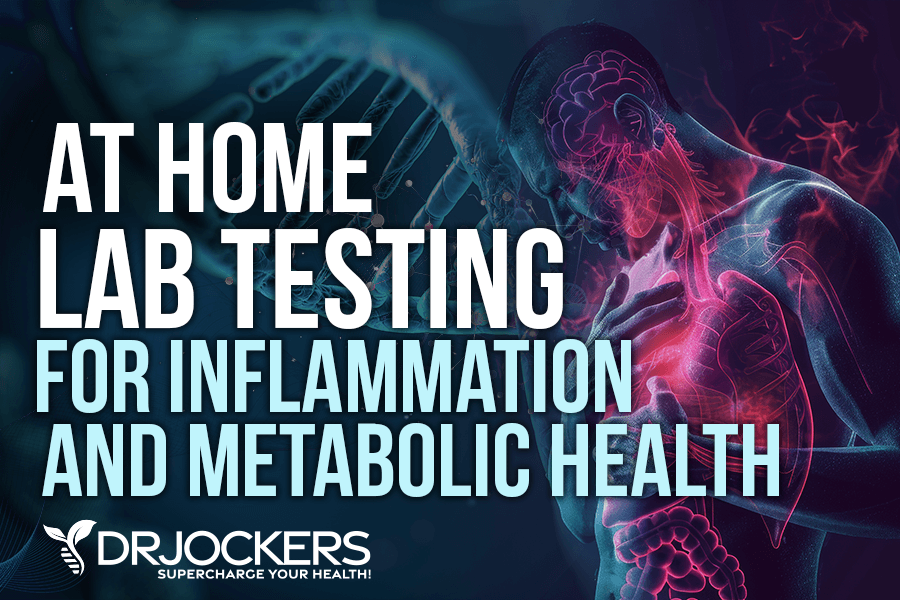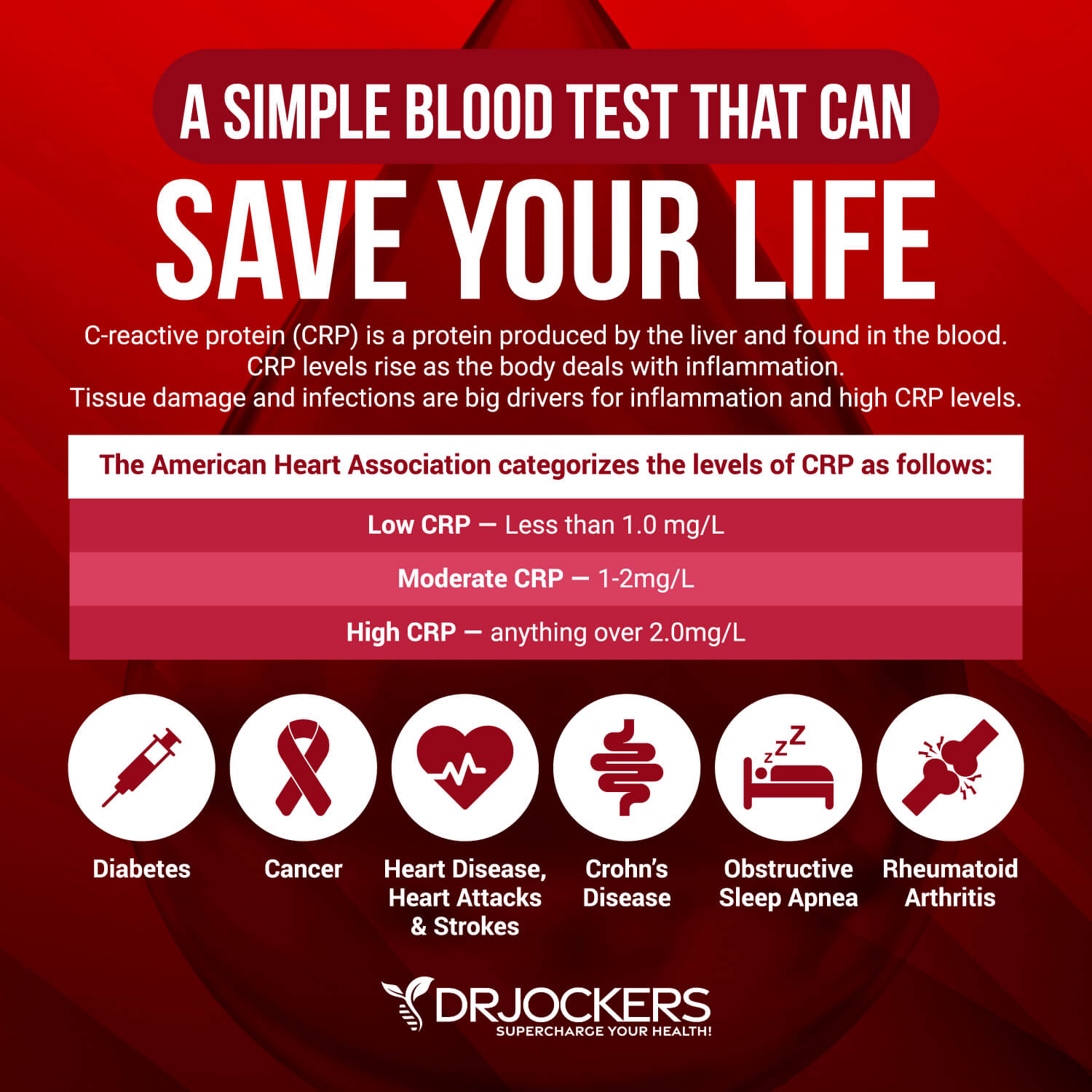 At-Home Lab Testing for Inflammation and Metabolic Health
At-Home Lab Testing for Inflammation and Metabolic Health
Chronic inflammation and metabolic health issues are rampant. They are also common underlying issues behind chronic symptoms and chronic health issues. Regular lab testing can help us to uncover the reasons behind your symptoms, diagnose health issues, understand risk factors for chronic health problems, identify necessary dietary and lifestyle changes, create the best treatment protocol, and track progress.
Unfortunately, lab testing can be expensive and for some, not easy to access. At-home lab testing is a simple and accessible way to save money and get your lab testing done from the comfort of your home with ease.
In this article, you will learn about the importance of lab testing. I will go over some of the key lab markers I recommend for inflammation and metabolic health, including ideal levels. I will share one of my favorite at-home lab testing options SiPhoX Health. You will also learn about the benefits and convenience of home lab testing.

Importance of Lab Testing
Laboratory testing or lab testing can check a sample of your blood, urine, or body tissues, depending on the type of test. These samples are analyzed by a lab technician and your doctor to check important measurements.
These tests can indicate whether your results fall under the optimal or normal range. Too low or too high levels can indicate chronic inflammation, chronic or acute health issues, or an elevated risk of disease.
Falling within the normal, but not optimal range may indicate that while you are in good health, you can still make some adjustments to improve your vitality and reduce future health risks.
Lab testing can indicate issues that you may not notice otherwise in your body. It may help us to explain your symptoms.
Regular testing can also help your doctor compare your results from previous tests, see upward or downward trends, monitor your health issues, and track the progress of your treatment plan. Lab testing can help your functional health professional create a personalized treatment plan, including dietary changes, lifestyle recommendations, and appropriate supplementation to improve your health.

Key Lab Markers for Inflammation and Metabolic Health
Chronic inflammation is the most common underlying issue behind most chronic symptoms, chronic health issues, and diseases. Just like chronic inflammation, metabolic health issues are also rampant and are a common risk factor for all kinds of health issues. Thus, testing for key lab markers for inflammation and metabolic health issues is critical, especially, if you are dealing with symptoms and health issues.
Understanding inflammatory lab markers is critical for identifying underlying health issues and making appropriate changes to repair your body and regain your health and vitality. It can help your functional health professional create a personalized treatment plan, including dietary changes, lifestyle recommendations, and appropriate supplementation to improve your health. Here are some key lab markers for inflammation and metabolic health I recommend:

HbA1C
Blood sugar imbalances are one of the main causes of inflammation, so I recommend checking your hemoglobin A1C (HbA1C) levels. A study published in the Journal of Clinical Endocrine Metabolism has found that eating a Standard American Diet (SAD) increases the risk of obesity and metabolic diseases, which are both linked to blood sugar imbalance, increased risk of inflammation, and age-related chronic diseases (1).
Thus, testing your HbA1C levels is critical to uncover lifestyle-related blood sugar imbalances, metabolic issues, and inflammation. Your HbA1C levels measure your average blood sugar over the past 2 to 3 months.
Optimal levels:
Hemoglobin A1C (HbA1c) gives the average amount of glucose in your blood or blood sugar over the past 3 months making it one of the top tests for inflammation and diabetes. The clinical range is between 4.8 and 5.6 while the optimal range is 4.5 – 5.2.

Hs-CRP
The C-reactive protein or CRP test is a key test I recommend. It measures a protein (CRP) produced in your liver that indicates inflammation levels in your body. According to a 2022 review published in Cureus, Hs-CRP levels can be used as a measurement of inflammation in pre-diabetes (2).
Optimal levels:
The clinical range is between 0 and 3 mg/L while the optimal range is 0 to 1 mg/L. When I see levels over 1 mg/L, I know the individual is having an inflammatory response that could be due to acute trauma or chronic conditions.

Homocysteine
Homocysteine is a common amino acid in your blood that you mostly get from eating meat. Homocysteine is particularly a good marker for cardiovascular issues. According to a 2010 study published in Experimental & Clinical Cardiology, elevated homocysteine levels may indicate inflammation and acute coronary syndrome (3).
Optimal levels:
The optimal range for homocysteine is between 6 and 9.

Triglycerides
Checking your triglycerides and lipid ratios is also a great marker to look at inflammation and related issues, such as clogged arteries and cardiovascular issues. A 2019 article in The Effect of Inflammation and Infection on Lipids and Lipoproteins published by Endotext has stated that elevated lipid levels may indicate inflammation or infection (4).
Optimal levels:
The ideal range for triglycerides is 40 to 80.
The ideal range for VLDL cholesterol is 5 to 30 mg/dl.
The ideal range for HDL cholesterols is 55 to 80. Levels above 100 can indicate chronic inflammation or active infection in the body.
We can’t just look at your triglyceride or cholesterol levels as stand-alone numbers. We also need to check your lipid ratios as an indicator of good health or health risks. Having a balanced ratio of LDL to HDL and triglycerides to HDL is essential for your health.
Optimal levels:
The ideal LDL: HDL ratio is 3:1 or less, 2:1 being optimal.
For triglycerides, we are looking for an HDL ratio is 2:1 or less, 1:1 being optimal. Higher rates may indicate insulin resistance and inflammation.

Serum Ferritin
Serum ferritin measures the level of ferritin in your body to detect iron deficiency anemia and other health issues. According to a 2012 study published in the European Geriatric Medicine, increased ferritin levels may be associated with underlying iron deficiency and age-related inflammation in older people (5).
Elevated serum ferritin levels may indicate inflammation, liver disease, autoimmune disease, or even cancer.
Optimal levels:
The clinical range is 30 to 400 and the optimal range is 25 to 100 for females and 50 to 150 for males.

Vitamin D
Vitamin D3 is an important vitamin that most of our population is deficient in. Poor levels may indicate inflammation.
According to a 2014 study published in the Journal of Inflammation Research, vitamin D deficiency may increase the risk of inflammatory diseases, including atherosclerosis-related cardiovascular disease, inflammatory bowel disease, chronic kidney disease, nonalcoholic fatty liver disease, and asthma (6).
Optimal levels:
Normal levels of vitamin D are 50 nmol/L (20 ng/mL) or more, while optimal levels are over 75 nmol/L (30 ng/mL).

ApoB:ApoA1 Ratio
The apolipoprotein B (ApoB) to apolipoprotein A1 (ApoA1) ratio is also often referred to as the apo-ratio. The ApoB:ApoA1 lab test measures the balance of atherogenic and antiatherogenic lipoproteins in your blood. This ratio can help to predict the risk of cardiovascular disease.
According to a 2021 study published in the Egyptian Heart Journal, the ApoB:ApoA1 ratio may be a good predictor the severity of coronary artery disease in those with acute coronary syndrome (7). In fact, it may be a better predictor than regular lipid tests.
Optimal levels:
The normal ratio is less than 0.8.

Introducing SiPhoX Health Home Lab Testing
For at-home lab testing, I recommend SiPhox Health test kits. They offer a variety of kits, all of which include 17 tests to explore 17 foundational biomarkers.
These at-home lab testing kits are simple, affordable, and convenient. They are delivered right to your door. They are lowest cost at-home lab tests on the market. They provide simple, easy-to-follow instructions to make the testing process feel like a breeze. You can even book a free collection success call (or call in live while you’re registering the test!) if you need some assistance.
You will receive your results within a few days with your biomarkers and personalized insights. You can share these results with your doctor to come up with the best treatment plan or even use it on your own to make some changes and start living a healthier life. Regular testing can help you and your doctor to monitor your progress as well.
Foundation Kit
The most popular test that SiPhox Health offers is the Foundation Kit. This kit looks at an array of biomarkers across inflammation, metabolic and cardiovascular health, and hormonal balance. It includes ApoB, ApoA1, ApoB:ApoA1 ratio, HDL-C, LDL-C, triglycerides, total cholesterol, HbA1c, hsCRP, TG:HDL-C radio.
It also includes estradiol and FSH for females, DHEA-s, total testosterone and testosterone-cortisol ratio for males, and cortisol, TSH, vitamin D, TC:HDL-C ratio, fasting insulin, homocysteine, and ferritin for all. In addition to the Foundation Kit, SiPhox Health also offers additional specialty tests to look at specific areas of your health.
Thyroid+ add-on
One of the great add-ons to the powerful foundation panel that SiPhox Health offers is the Thyroid+. This panel tests for free T4, free T3, and TPO.
These biomarkers are great to test if you’re worried you may have some hidden thyroid problems or if you want to manage your symptoms. You may uncover the reasons for unexplained fatigue, weight changes, mood issues, and other symptoms often attributed to thyroid imbalances.
Metabolic+ add-on
Another test I recommend from SiPhox Health is the Metabolic+ add-on. It tests for ALT, AST, albumin, BUN, creatinine, bilirubin, eGFR, glucose, and lipoprotein(a).
This is a fantastic test to look at markers for blood sugar imbalances, insulin resistance, pre-diabetes, type 2 diabetes, and metabolic issues, as well as to look at the risks and monitor markers of these health issues.
Hormone+ Test Kit
Finally, SiPhox Health offers a Hormone+ add-on.
This add-on is an option to look at other hormonal markers, including estradiol, LH, SHBG, prolactin, FSH, PSA, albumin, and free testosterone for men, and LH, folate, vitamin B12, Anti-Mullerian hormone, SHBG, prolactin, and DHEA-S for women.
This is a fantastic option for both women and men to look at markers for hormonal issues, including PMS, menstrual abnormalities, symptoms of premenopause and menopause, low libido, fertility issues, and stress.
Convenience of Home Lab Testing
When you think about lab testing, you probably think about going to a lab to get your blood drawn or samples taken. However, there are other options. Home lab testing can be a very convenient option. It can save you time and effort.
You can fit it into your own schedule and do it in the privacy of your own home without visiting a lab or the doctor’s office. It can be a great option if you are dealing with a disability, limited mobility, or a painful health situation or if you have limited access to medical facilities.
Finally, it can be very cost-effective and save you money. SiPhox Health is the lowest cost at-home lab test on the market. You can save 20% off on at-home lab testing using my specific link here: At-Home Health Testing | SiPhox Health.
Final Thoughts
Getting lab testing can help us uncover the reasons behind your symptoms, diagnose health issues, understand risk factors for chronic health problems, identify necessary dietary and lifestyle changes, create the best treatment protocol, and track progress.
Lab testing can be expensive and for some, not easy to access. At-home lab testing is a simple and accessible way to save money and get your lab testing done from the comfort of your home with ease. I recommend SiPhoX Health as an at-home lab testing option. You can get 20% OFF by using my link here.
If you want to work with a functional health coach, I recommend this article with tips on how to find a great coach. Our website offers long-distance functional health coaching programs with our world-class team of health coaches. For further support with your health and other goals, just reach out—our fantastic coaches are here to support your journey.
Inflammation Crushing Ebundle
The Inflammation Crushing Ebundle is designed to help you improve your brain, liver, immune system and discover the healing strategies, foods and recipes to burn fat, reduce inflammation and Thrive in Life!
As a doctor of natural medicine, I have spent the past 20 years studying the best healing strategies and worked with hundreds of coaching clients, helping them overcome chronic health conditions and optimize their overall health.
In our Inflammation Crushing Ebundle, I have put together my very best strategies to reduce inflammation and optimize your healing potential. Take a look at what you will get inside these valuable guides below!







To decrease Apolipoprotein B numbers, should more quantity of healthy fats like coconut oil, grass fed butter, olive oil, nuts, and seeds be added to the diet? Thank you!